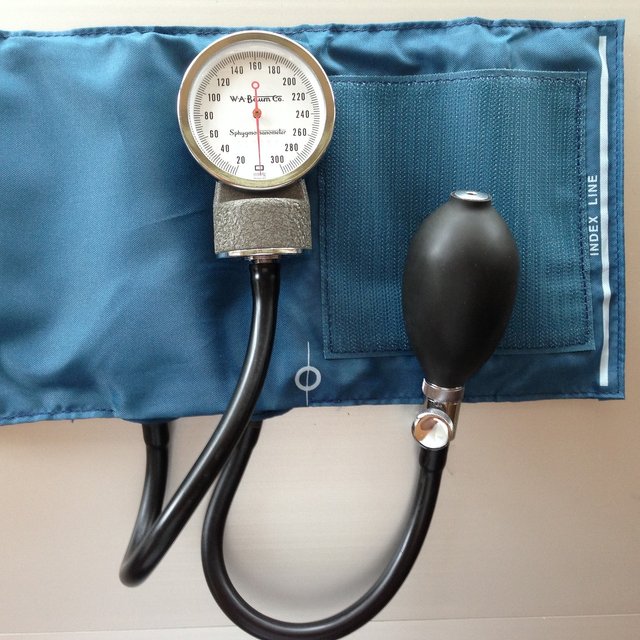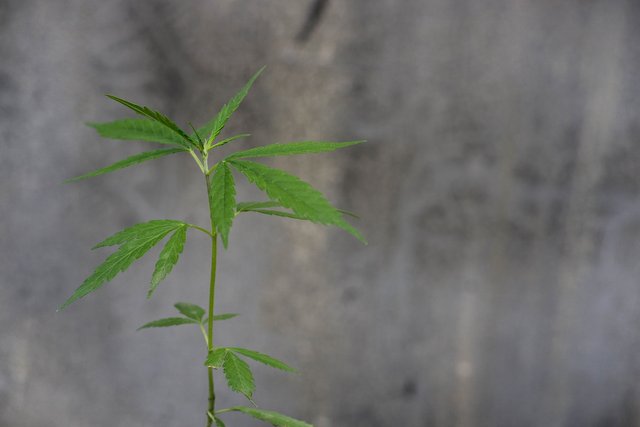Can CBD Lower Blood Pressure?
Table of Contents
1. CBD: The Benefits of Cannabis Products
2. How does CBD help with hypertension?
2.1. Regulation of stress levels
2.2. Regulation of the signaling of nerve cells involved in the control of blood pressure
3. CBD dosage for hypertension
4. References
Hypertension or high blood pressure is a problem that can affect both young and old, with the positive effects that CBD can have on a person's health, it is fair to ask ourselves if CBD reduces blood pressure.
Blood pressure, also known as tension, is the force with which the blood presses against the walls of the arteries as it circulates through them. If this pressure during circulation increases beyond a certain point, the artery suffers damage that can transform into health problems.
Hypertension is the name given to the disease caused by inadequate levels of blood pressure. This is a disease that tends to affect older people as their artery walls thicken with age, making them less flexible. However, a sedentary lifestyle and problems of overweight and obesity increase the risks of hypertension in young people.
Although there are no clear symptoms on the basis of which it can be diagnosed, high blood pressure can cause cardiovascular disorders such as: myocardial infarction, heart failure and strokes.
CBD: The Benefits of Cannabis Products
With increasing frequency, new CBD products are entering the market as an alternative treatment for a variety of health problems.
The action that CBD exerts on the Endocannabinoid System (ECS) of the human being results in multiple benefits for the health and well-being of our body. Without causing us some kind of hallucinogenic effect.
Among the positive effects you can experience when consuming CBD are:
• Relaxation of body and mind.
• Calm anxiety.
• Relief of chronic pain.
• Strengthening the Immune System.
Because CBD stimulates the production of serotonin, also known as the hormone of happiness, and produces a state of tranquility and calm, its products contribute to stress management and improve mood.
Currently, CBD is the focus of many studies due to its therapeutic properties, until now it has been shown that it is capable of working effectively as an anti-inflammatory, anticonvulsant, antioxidant, anxiolytic, antinausea and antipsychotic.
One thing to keep in mind is that whenever you are considering starting CBD, you should consult with a medical professional first. Especially if you are in treatment with any medication, since CBD can interact and affect the effectiveness of some of them.
How does CBD help with hypertension?
When consuming CBD, it is able to act on the regulation of two essential factors that are directly related to high blood pressure, these are:
1. Regulation of stress levels
Despite the fact that among the main reasons why people may suffer from hypertension or high blood pressure is age and obesity, there are studies that show that there is a relationship between the level of stress and the probability of suffering from cardiovascular diseases.
The factors that can increase a person's stress level can vary from person to person, but complicated situations such as social isolation, a low socioeconomic level, depression, a complicated family and work life, as well as anxiety are associated with increased risk of development and accelerated progression of cardiovascular disease.
In this sense, CBD acts as an anti-stress treatment that can have positive effects on keeping blood pressure low or at a healthy level.
CBD for hypertension is a treatment more associated with controlling the factors that may be influencing the increase in blood pressure. By working as an effective anxiolytic, muscle relaxant and reducing symptoms such as pain and insomnia, CBD becomes an ally against cardiovascular diseases.
2. Regulation of the signaling of nerve cells involved in the control of blood pressure
The ECS spans the entire brain and body and is made up of an intricate network of cannabinoid receptors and their respective messenger molecules (endocannabinoids). This system is essential to maintain the balance of our body.
Among the network of cannabinioid receptors you can find the CB1 and CB2 receptors, both of which play different roles in maintaining blood pressure and are the direct receptors for CBD.
Most of CBD's blood pressure regulatory activity is associated with its effects on CB1 receptors. This is because CB1 receptors are found in greater numbers in the neurological system and in areas where blood pressure is regulated such as: the adrenal glands, blood vessels, lungs, and heart.
In the case of CB2 receptors, these are mainly found in the immune system. These receptors contribute to the regulation of blood pressure only when the body is weak from illness or in the process of recovery.
So based on what we already know about the effects of CBD on stress regulation and its interaction with CB1 and CB2 receptors, can CBD lower blood pressure?
The answer is yes, CBD is capable of lowering blood pressure, in addition to slowing the heart rate in the event of arrhythmia, by relaxing the blood vessels.
CBD dosage for hypertension
Keeping blood pressure within optimal limits is of vital importance to maintain good health, when it is constantly above the healthy level it becomes a problem of hypertension.
Unfortunately, researchers have yet to reach a general consensus on the certain dosages to treat any condition.
In general, it is recommended that if you are thinking of starting to consume CBD for hypertension, you start using the escalation method.
This method involves starting with low doses of CBD and increasing it each week until you find the right dose to treat your condition.
Make sure to consult your doctor before starting a CBD treatment and inform yourself about the possible interactions of CBD with other medications. CBD lowers blood pressure, but takes all factors into account before starting an alternative treatment.
References
1. El-Remessy, A. B., Al-Shabrawey, M., Khalifa, Y., Tsai, N. T., Caldwell, R. B., & Liou, G. I. (2006). Neuroprotective and blood-retinal barrier-preserving effects of cannabidiol in experimental diabetes. The American journal of pathology, 168(1), 235-244.
2. Figueredo, V. M. (2009). The time has come for physicians to take notice: the impact of psychosocial stressors on the heart. The American journal of medicine, 122(8), 704-712.
3. Jadoon, K. A., Tan, G. D., & O’Sullivan, S. E. (2017). A single dose of cannabidiol reduces blood pressure in healthy volunteers in a randomized crossover study. JCI insight, 2(12).
4. Kato, H., Sugimura, T., Akagi, T., Sato, N., Hashino, K., Maeno, Y.,... & Yamakawa, R. (1996). Long-term consequences of Kawasaki disease: a 10-to 21-year follow-up study of 594 patients. Circulation, 94(6), 1379-1385.
5. Mechoulam, R., & Hanuš, L. (2002). Cannabidiol: an overview of some chemical and pharmacological aspects. Part I: chemical aspects. Chemistry and physics of lipids, 121(1-2), 35-43.
6. Pacher, P., Bátkai, S., & Kunos, G. (2005). Blood pressure regulation by endocannabinoids and their receptors. Neuropharmacology, 48(8), 1130-1138.
7. Piepoli, M. F., Hoes, A. W., Agewall, S., Albus, C., Brotons, C., Catapano, A. L., & Verschuren, W. M. (2016). Guidelines: Editor's choice: 2016 European Guidelines on cardiovascular disease prevention in clinical practice: The Sixth Joint Task Force of the European Society of Cardiology and Other Societies on Cardiovascular Disease Prevention in Clinical Practice (constituted by representatives of 10 societies and by invited experts) Developed with the special contribution of the European Association for Cardiovascular Prevention & Rehabilitation (EACPR). European heart journal, 37(29), 2315.
8. Rajesh, M., Mukhopadhyay, P., Bátkai, S., Patel, V., Saito, K., Matsumoto, S., ... & Pacher, P. (2010). Cannabidiol attenuates cardiac dysfunction, oxidative stress, fibrosis, and inflammatory and cell death signaling pathways in diabetic cardiomyopathy. Journal of the American College of Cardiology, 56(25), 2115-2125.
9. Sidney, S. (2002). Cardiovascular consequences of marijuana use. The Journal of Clinical Pharmacology, 42(S1), 64S-70S.
10. Stanley, C. P., Hind, W. H., & O'Sullivan, S. E. (2013). Is the cardiovascular system a therapeutic target for cannabidiol?. British journal of clinical pharmacology, 75(2), 313-322.
11. Stanley, C. P., Hind, W. H., Tufarelli, C., & O'Sullivan, S. E. (2015). Cannabidiol causes endothelium-dependent vasorelaxation of human mesenteric arteries via CB1 activation. Cardiovascular research, 107(4), 568-578.

Yes it can